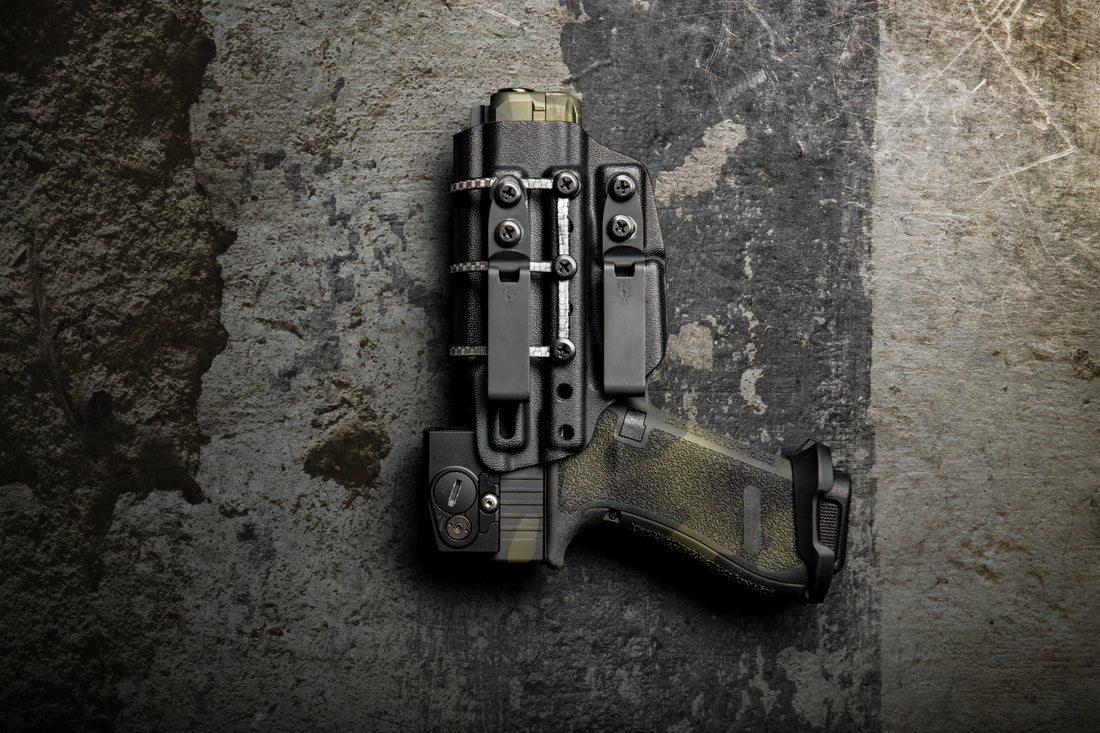Selecting the appropriate caliber and round for your concealed carry firearm is a crucial decision that directly impacts your self-defense capabilities. Factors such as terminal performance, recoil management, concealability, and personal proficiency must be carefully considered. In this blog post, we will explore the key factors to help you make an informed decision when choosing the right caliber and round for your concealed carry needs.
1. Terminal Performance:
Terminal performance refers to how effectively a round stops a threat upon impact. It is influenced by factors such as bullet design, expansion, penetration, and energy transfer. Look for ammunition specifically designed for self-defense, as they are engineered to deliver optimal terminal performance and minimize the risk of over-penetration. Hollow point bullets are commonly preferred for their ability to expand upon impact, creating larger wound channels and increasing stopping power.
2. Recoil Management:
Recoil management is crucial for accurate follow-up shots and maintaining control of your firearm. Consider your comfort level and shooting proficiency when choosing a caliber. Smaller calibers, such as 9mm and .380 ACP, generally produce less recoil, allowing for faster target reacquisition. However, it's important to find a balance between manageable recoil and sufficient stopping power, ensuring you have confidence in your ability to place accurate shots under stress.
3. Firearm Size and Concealability:
The size and weight of your concealed carry firearm play a significant role in how effectively you can conceal and carry it comfortably. Compact and subcompact pistols chambered in smaller calibers, like 9mm or .380 ACP, are generally easier to conceal due to their reduced dimensions. Consider your body size, clothing choices, and preferred method of carry (inside the waistband, appendix, ankle, etc.) when selecting a firearm that suits your concealment needs.
4. Capacity and Reload Speed:
The capacity of your concealed carry firearm affects how many rounds you have available in a self-defense situation. Consider the balance between capacity and the size of the firearm. Smaller pistols tend to have reduced magazine capacity, so evaluate whether the trade-off in capacity is acceptable based on your needs and the potential threats you may encounter. Additionally, consider your proficiency in reloading under stress and choose a firearm with magazine interchangeability or ease of reloads if necessary.
5. Ammunition Availability and Cost:
Consider the availability and cost of ammunition for the caliber you choose. Popular calibers like 9mm tend to have a wide range of ammunition options and are generally more affordable compared to less common or boutique calibers. Ensure that you can consistently access quality self-defense ammunition for your chosen caliber to ensure reliability and functionality.
6. Personal Proficiency and Training:
Your personal proficiency and training play a vital role in your ability to effectively use your concealed carry firearm. Regardless of the caliber, regular practice, and training are essential for developing proper shooting skills, shot placement, and the ability to handle stress and make accurate decisions in self-defense scenarios. Invest in training courses and practice regularly to hone your skills and build confidence.
7. Consider Expert Opinions and Ballistic Testing:
Take into account expert opinions and independent ballistic testing when making your decision. Numerous resources and reputable organizations conduct comprehensive testing of various calibers and ammunition types to evaluate their performance in real-world scenarios. Consider these findings alongside your own research to make an informed decision.
Selecting the correct caliber and round for concealed carry requires a thoughtful assessment of various factors, including terminal performance, recoil management, firearm size and concealability, capacity, ammunition availability, and personal proficiency. Finding the right balance between stopping power, control, and concealment is crucial. Remember, your choice of caliber is just one aspect of a comprehensive self-defense strategy.
Regular training, proficiency, and situational awareness are equally important for maximizing your safety and effectiveness in a self-defense situation.

